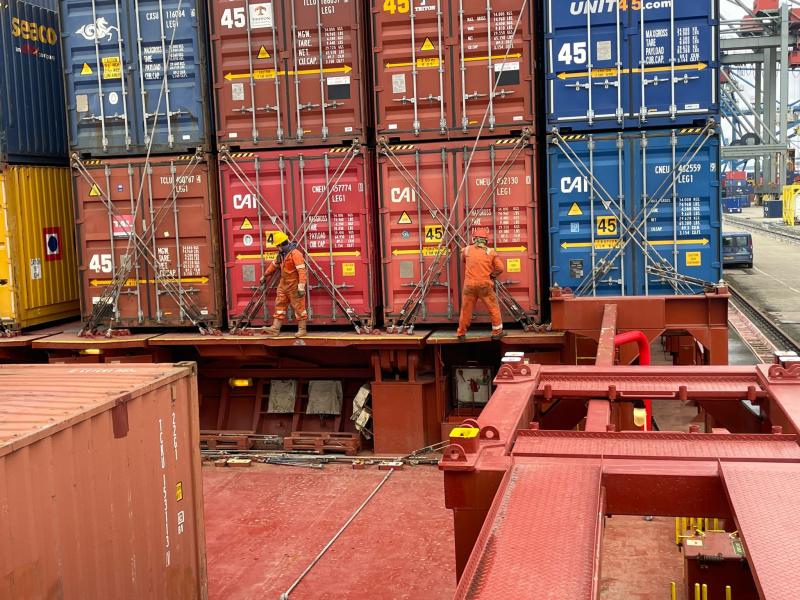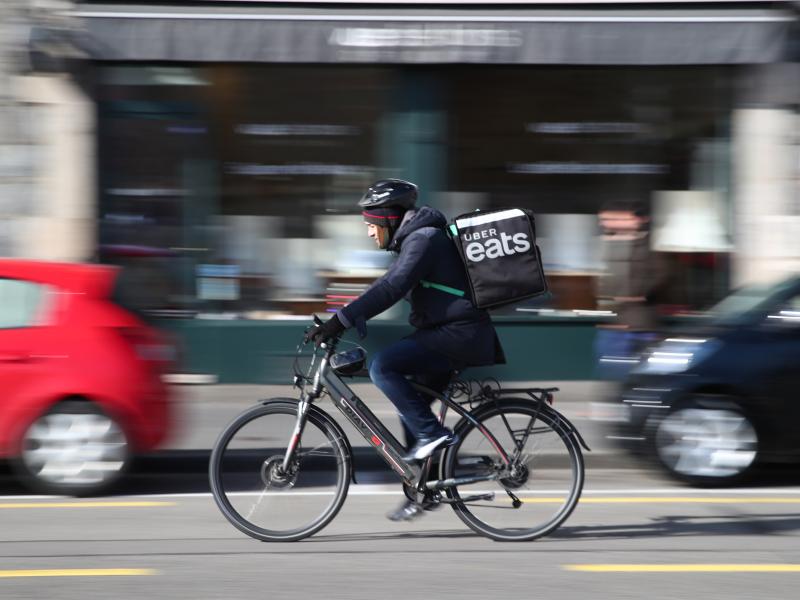- New EU Directive announced today includes a presumption that gig workers will be treated as employees.
- More than five million workers, including ride-hail drivers and food delivery riders, could see a big step forward in standards of pay and conditions as the EU introduces rules to stop their misclassification as independent contractors.
- Legal loopholes used by platform companies to misclassify workers and avoid unions are disappearing, it’s now time for them to engage and negotiate constructively with unions.
Ride-hail drivers, food deliverers and other workers have been treated unfairly by app-based companies who dodge responsibilities and cut costs by dealing with them as independent contractors rather than employees. This has resulted in workers being stripped of basic rights including minimum pay, holidays, or access to personal protective equipment. The misclassification also means that workers have not been able to bargain collectively.
A new EU Directive announced today includes a presumption that gig workers will be treated as employees. The Directive is broadly welcomed by the International Transport Worker’s Federation (ITF), the European Transport Worker’s Federation (ETF) (see ETF press release here) and affiliated unions. Unions have campaigned publicly and worked tirelessly behind the scenes at the EU and elsewhere to achieve better legal protection for platform workers. The presumption coupled with a ‘reversal in the burden of proof’ in any disputes on employment status are important because it should cut down the need for workers to engage in expensive legal action to defend their rights.
“This Directive is a landmark for raising standards of employment in the platform economy,” said ITF General Secretary Stephen Cotton. “Platform companies like Uber, Bolt, Deliveroo, Glovo and others for too long have been able to use loopholes in legislation to exploit workers.
“Although we have some concerns about certain provisions of the Directive that may allow for platform companies to exploit loopholes and evade employment responsibilities, we’re glad to see that EU regulators are catching up and following unions’ lead on this.
“The Directive sets sound principles on how workers should be treated, and we hope it will signal a path forward for regulators around the world. The point of contention is now over. It’s time for platform companies to engage constructively with unions. Let’s work together to improve working conditions in the sector. The ITF will work with any company that respects the rules,” said Cotton.
The Directive also tackles some of the most egregious aspects of algorithmic management. People have found themselves losing work or coerced into unsympathetic work patterns by unmonitored software. The ITF supports the Directive’s stance that algorithmic management must be more transparent and should allow for workers to appeal employment-related decisions like deactivations to real people. However, amendments must go further to mandate formal hearings and ensure trade union representation in all disciplinary cases and to ensure protection against algorithmic discrimination and bias.
Big tech companies have been fighting internationally to keep misclassifying workers under the ‘flexibility’ myth. Workers’ rights groups including the ITF have had to take a tough stance against their legal challenges and well-funded lobbying tactics.
In California, big tech spent hundreds of millions of dollars to introduce a law striking out worker protection in the US state. They tried to overturn a law stopping the misclassification of workers as independent contractors. Unions took it to court, and the court declared their actions unconstitutional.
Platform companies have started a similar campaign in Massachusetts, where they are slated to again spend millions to effectively buy a law that would support their exploitative business models. In the EU, they have also been spending freely and lobbying hard, trying to stop or water down this new Directive.
“It’s heartening to see the EU stand up to these bullying tactics,” said Frank Moreels, ETF President. “But to the platform employers we say this: ‘It’s time to stop fighting and start talking. Negotiate with us. Treat your people fairly as employees and embrace a new model that may actually see your business improve’.”
Unions have been campaigning to end the misclassification of ride-hail drivers, food deliverers and other gig workers globally for many years. The Directive now gives these workers in the EU genuine rights to collectively bargain as employees. The ITF will continue to support the ETF through the legislative process to ensure that we settle with a strong set of rules that protect transport workers and ensure fair competition.
“Collective bargaining is the way forward for platform workers,” said Moreels. “The Directive will make that easier in the EU. But even before it comes into force in Europe and spreads to other regions of the world, workers are standing together to fight for their rights. We urge all gig-workers to join a union because together your voices are louder and carry much more weight.”
It could take several years for the draft Directive to progress through the European Parliament and other EU institutions before it is implemented in the national laws of member states. At that stage, enforcement authorities in individual EU countries will take action against companies who illegally misclassify employees.
“The writing is on the wall. We’re asking platform employers to make the move long before the enforcers come to call. You’ve been exploiting your workers for too long. Now it’s time to clean up your act,” Moreels added.


